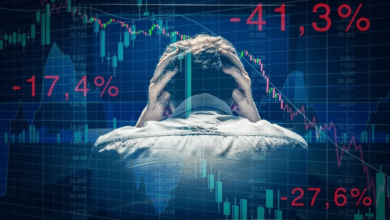Economist Warns: Bitcoin Reserves Are Like ‘Laying Landmines’ in Russia
A leading Russian economist has strongly opposed the idea of Moscow developing a strategic Bitcoin reserve, calling it a dangerous financial move.

A prominent Russian economist has vehemently opposed Moscow’s idea of creating strategic Bitcoin reserves, labeling it a potentially detrimental financial decision.
Valentin Katasonov, Chairman of the S. F. Sharapov Russian Economic Society, drew a stark comparison, stating that this approach resembles “laying landmines” within Russia’s economic landscape.
Bitcoin Reserves Risky Strategy
In comments reported by MoneyTimes.ru, Katasonov urged Russian policymakers to pursue a “cautious approach” when contemplating the establishment of a national cryptocurrency reserve. He indicated that Bitcoin reserves and other cryptocurrencies should not be considered “fully fledged” currencies; instead, they are speculative assets that could lead to economic instability.
He elaborated, “[Talk about creating strategic crypto reserves] is a way of inflating bubbles. If the bubble bursts, everything will be fine if the economy holds up. But, regardless, there will still be many victims.”
This cautionary stance emerges amidst a growing sentiment among some Russian lawmakers who support the creation of a state-controlled Bitcoin fund, motivated by a desire not to fall behind global competitors like the United States. However, Katasonov dismissed these initiatives as misguided and questioned the overall economic viability of cryptocurrencies.
Crypto Advocates Are ‘Fifth Columnists’?
Katasonov escalated his criticism by targeting advocates for incorporating Bitcoin into Russia’s financial framework. He referred to these promoters as “fifth columnists,” a term historically associated with people undermining national interests from the inside.
He warned that proponents of a state-backed Bitcoin reserve could inadvertently jeopardize Russia’s economic stability, highlighting the lack of successful implementation of official crypto reserves in any country. While some might cite El Salvador as a leading example, Katasonov pointed out that the International Monetary Fund (IMF) has expressed concerns regarding the Central American nation’s Bitcoin-centric policies.
Russia’s Official Stance on Bitcoin Reserves
At this time, Russia’s Central Bank has categorically dismissed the notion of amassing Bitcoin reserves. The Finance Ministry has confirmed its commitment to investing in gold and the Chinese yuan while avoiding riskier assets such as cryptocurrencies.
Nonetheless, officials have suggested that if the National Welfare Fund accounts for 7-10% of GDP, they may “consider” including volatile assets like Bitcoin in their reserves. As discussions unfold, Russia finds itself at a pivotal junction, whether to adhere to conventional financial investments or to tentatively explore the world of cryptocurrencies.





















































